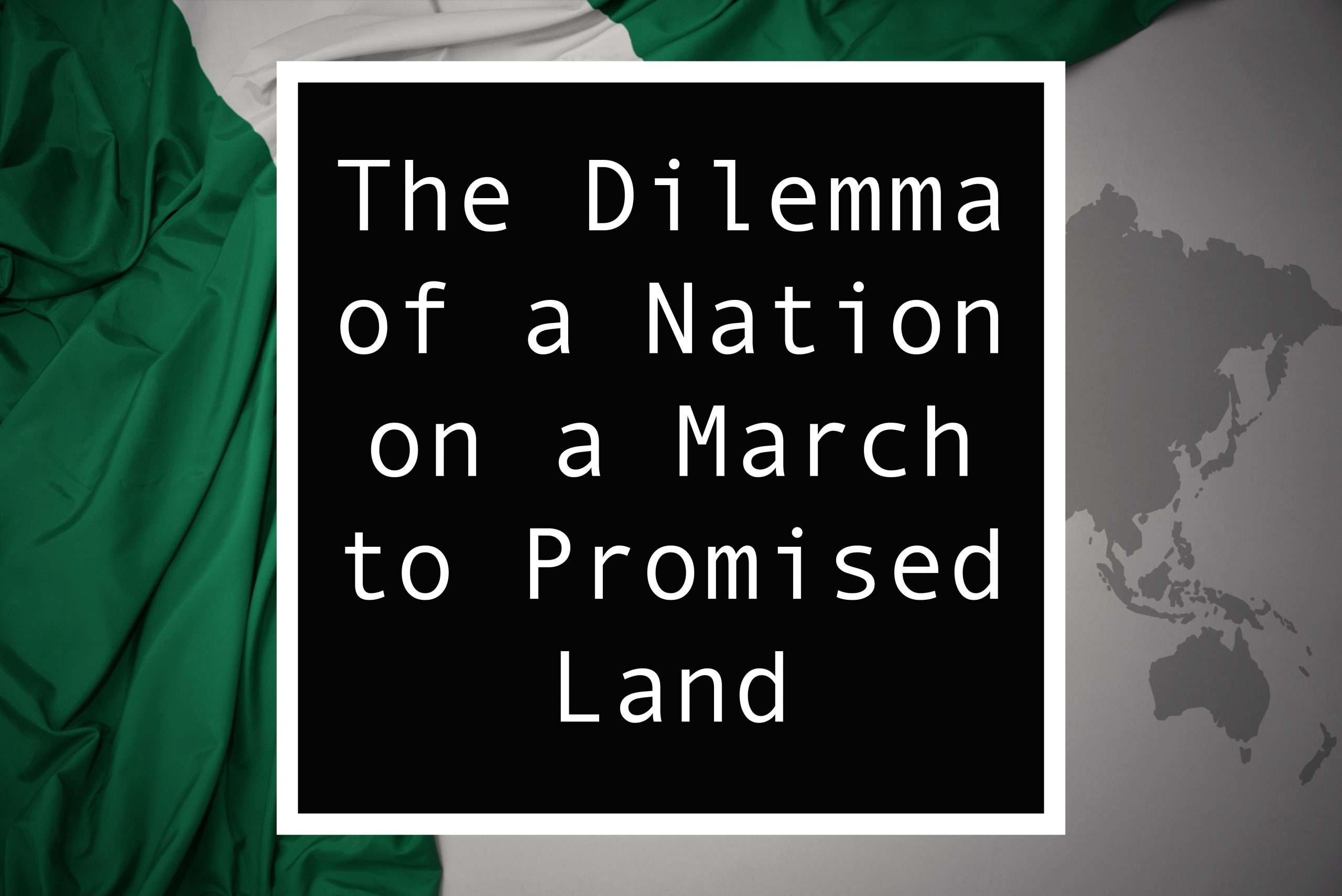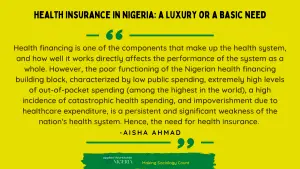Nigeria is a nation of many contradictions, and as such, her march towards her sixtieth independence anniversary which came up on the first day of October, 2020, was with a bated breath. Here is a nation that has every qualification to be one of the greatest nations on Earth forever embroiled in the pettiness of feeding her teeming populace, despite the fact that almost all of her landmass is fertile and able to sustain virile agriculture. Here is a nation reputed to be an African military powerhouse that had successfully brokered peace in two West African countries of Liberia and Sierra Leone still struggling for the past eleven years to dislodge a rag-tag army of largely illiterate insurgents. A nation of the most accomplished set of black men in the world still contending with the most egocentric set of rulers ever to bestride the face of the Earth. That is the Nigerian dilemma. Nigeria’s greatest asset as a nation is her people yet her greatest liability is equally her people.
In Support of Nigeria’s People
It is imperative for a developing nation to understand that her people are the most important factor and the most valuable resource for consideration in her match for ascendancy, and consequently, make and implement policies that will best maximize their potentials and afford them the enabling environments to participate in virtually all human channels through which their development is enhanced. While successive governments in Nigeria have realized this and have, as a result, made policies, over times, to enhance her citizenry’s physical, educational and economic qualities, implementations of such laudable policies have been hampered by various demons like; ethnicity, religious discrimination, nepotism, unbridled clamour for quick wealth and corruption among other ills. No people oriented policy in Nigeria has completely witnessed a thoroughfare implementation without the selfish human needs being its bane.
This is actually the reason the fight against insurgency, which has been scalding the Nigerian landscape for eleven years and has given birth to pockets of brutal banditry here and there has not been won. It is disheartening to note that insurgency and its offshoots – banditry – have claimed more than 40,000 lives and have rendered over two million people homeless. This is actually the reason electricity projects in the country remain moribund despite billions of naira being committed into it over the years. This is why the country’s three national refineries remain dilapidated and keep producing at their lowest capacity despite the fact that our major economic mainstay is petroleum and we are the largest exporter of petroleum in Africa. This is why health care facilities are still not sufficient and qualitative enough, especially for legions of our policy makers who continue to troop oversey to countries where policy makers like them make policies and implement them to the best of their abilities – to seek medical care when they are sick. This is why the country has become a haven of ‘whatever goes’ for gangsters, cultists, armed robbers, ritualists, rapists, drug barons and internationally acclaimed fraudsters. This is why hundreds of thousands of Nigerians migrate through legal and illegal means from the country daily and millions daily dream of magic wands to transport them away from her rich but plundered shores.
The Nigerian Dilemma
Nigeria is in a dilemma, her people are at the crossroad. The rivalry among her many indigenous nationalities is threatening to tear her asunder and bare her flesh for scavengers. In other parts of the world, ethnic, religious and cultural diversities are blessings, but here in Nigeria, these are obviously running us down. Some people have persistently argued that Nigeria is a fraud; an amalgamation of various incompatible nationalities forcefully and diabolically merged, more for the benefits of the colonial masters than the interest of the colonized people. This might be true; colonial policies are never meant to profit the people of the colonies but the colonists. However, a resourceful people like Nigerians should have found a way around the issue to benefit themselves sixty long years after the colonial misadventure if not for the many intractable human weaknesses which the people of this country continually indulge themselves in.
Man is selfish by nature; he is essentially egocentric. An ordinary man would naturally seek his own end while unwittingly jeopardizing the interest of others, but good leaders are not supposed to be the rung of the mill merely opportunistic ordinary men. Good leaders are supposed to have imbibed the right kind of education, orientation, or being naturally endowed with that lofty insight of leadership that predisposes them to be highly empathic and considerate. They must as such operate above the pettiness of ethnicity, narrow mindedness of religious bigotry and debilitating orgies of materialism. But this is not so for the vast majority of Nigerian leadership. Nigerian leaders fall short of the noble appellation of statesmen, they are at heart businessmen and their primary objective of dabbling into politics is to amass wealth. This is why till date Nigerian political office holders are the highest paid government operatives in the world and have never bothered to reverse the status quo despite myriad of clarion calls from people across the country and beyond while Nigeria is said to be the country with the highest number of people living below the poverty line with an estimated 86.9 million people living on less than three hundred and eight one Naira per day.
Vision 20: 2020
In the year 2006, the then government of President Olusegun Obasanjo introduced the now rested Vision 20: 2020. The project visualized building Nigeria into one of the twenty foremost economies of the world by year 2020. Vision 20:2020 was a sweet dream, and like every sweet dream, it comforted our million aches and made us hopeful of more fulfilled lives. However, it takes a lot of sacrifice, commitment, tolerance and honesty of purpose to lead dreams to reality. When dreams are hatched by marauding hawks, they eventually end up in their bellies. Year 2020 is here and the vision has irretrievably floundered and run into drainage of waste. Instead of a strong economy so envisioned, Nigeria is today a Medusa head of a million seething woes: the economy is right now at its lowest ebb, perhaps due to rampage of Covid-19, the people are at the end of their tethers and the country is just being coerced into continuous existence by sheer force and beautiful manipulations.
Just a few days ago, precisely on Wednesday 9th of September, 2020, President Muhammadu Buhari launched future oriented agenda Vision 2050. The agenda has so far generated no heat, perhaps because people see it as I see it, a mere escapist stunt. The agenda hopes to lift one hundred million Nigerians out of poverty by the year 2030 as Nigeria is expected to be the third most populated country of the world by the year 2050 with a population of over four hundred million people.
How plausible is this? If in truth the present government and the succeeding ones are able to lift a whopping hundred million people out of poverty line in ten years time, I would say a very big congratulations to them. But then, we must remember that even then Nigeria would still have at least over one hundred and fifty million poors to continue the present mad gyrations of dissatisfaction and its thousand attendant ills, especially if health facilities continue to be this sham, if our educational processes continue to be this unpredictable, if electricity continue to be this epileptic, if Fulani herdsman continue to roam and main and kill and we have not devised a civilized means of rearing cattles and caring for the farmers all over the country, if Boko Haram is not yet defeated and other groups of insurgents continue to rage. Honestly, lifting a hundred million Nigerians out of poverty is just one of the solutions, we must do more than that by the year 2030 if Vision 2050 is not going to be another wandering of wastage in the wilderness.
Ending the Nigerian Dilemma
As our sixty one independence anniversary comes in a few months time, I begin to wonder what is there for us to celebrate as a nation. Is it our once-upon-a-time buoyant Naira that has plummeted into mere footlicker for Dollar and Euro and other foreign currencies? Is it the pageantry of banditry and kidnapping that is rocking every inch of our once peaceful forests causing endless deaths and indescribable agony to innumerable people? Is it the ever growing soldiers of unemployed graduates, half baked and full baked alike, that fill our cities to the brim? Is it the legions of out-of-school youths and drop-outs alike venting their anger on the society by finding solace in cult activities and other anti-social engagements? Is it the rising number of suicide among our teenagers and youth in their early twenties, depleting the rank and file of our promising ones? Is it the shameful truth that a great petroleum exporting nation like Nigeria that had three functional refineries in the 1980s has not a single functional one to point at today? Is it the nauseating reality that Boko Haram insurgency which has been with us since 2009 is still much with us with no indication of its end in the near future? Is it the ugly fact that arms and ammunition are daily being stockpiled in this country at a very alarming rate and no serious measure is being taken to revert this ugly trend?
What are we celebrating? Nigerians at the helm of affairs at all levels and cadres, and those at the grinding mills should realize the importance of our collective and individual actions at any given time and situation because it is the culmination of our every day actions that give rise to our overall destiny as a nation. By every positive act, we build ourselves and the nation, while by every inglorious act, we ruin ourselves and the nation along with it. At times, our act of infamy may give us a temporary lift, however, we should know that the aftermath of every negativity is woe and disgrace, and that the temporary lift one gets from an infamous act will eventually nail him to the ground.
The working of Nigeria’s destiny depends on every one of us. And it is he that truly and faithfully works that should celebrate, not somebody who consistently rob Nigeria of its sheen.








